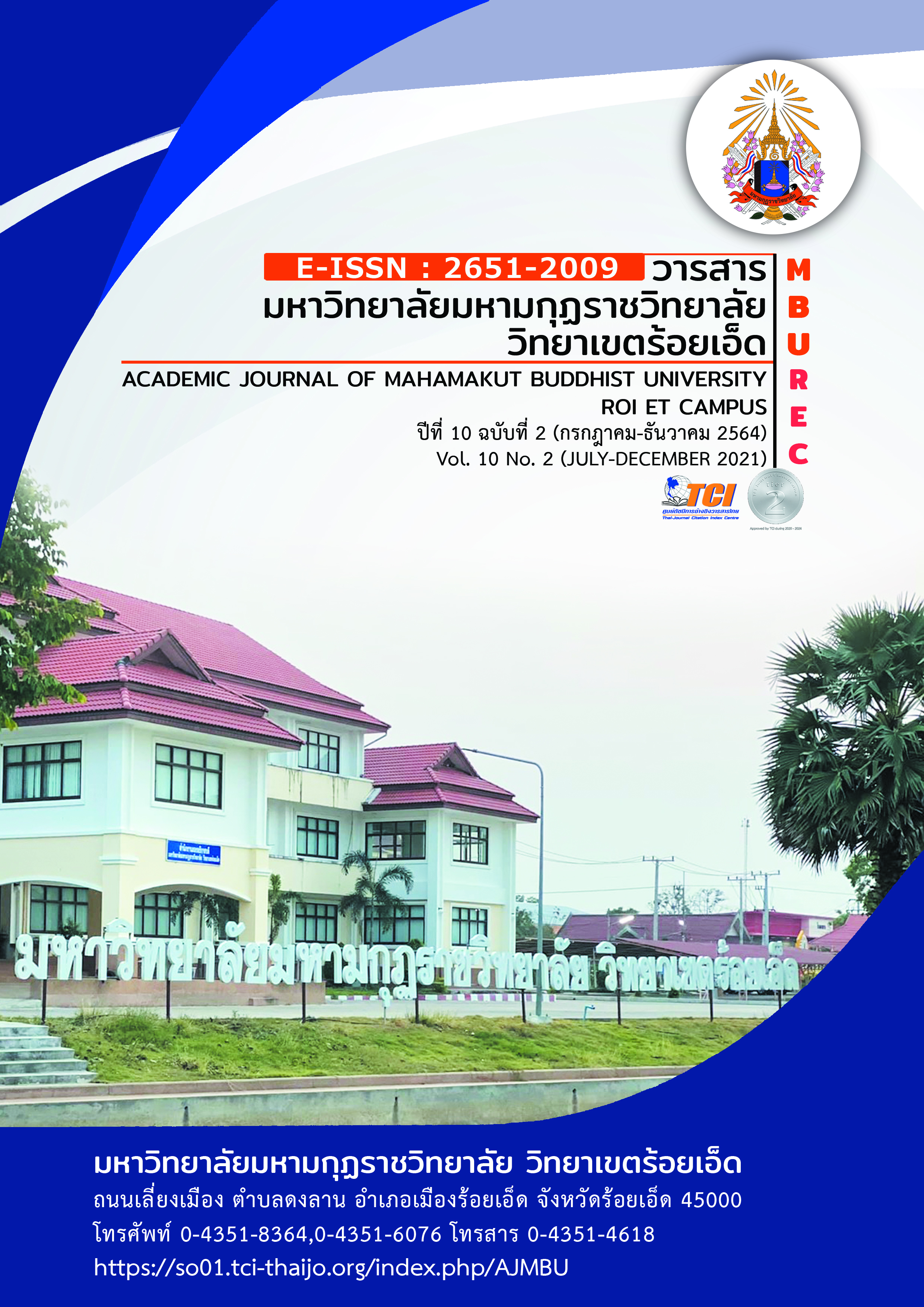The Development of a Learning Activity Package on Buddhist Principles According to the Four Noble Truths with the Techniques Think Pair Share, Basic Social Studies, Mathayomsuksa 5
Main Article Content
Abstract
The objective of the research article were 1) to Development of a learning activity on the Buddhist principles according to the four noble truths with the techniques Think Pair Share, Basic Social Studies subject, Mathayomsuksa 5, Criteria Effective 80/80, 2) to compare learning achievement between before and after learning activities on the Buddhist principles according to the four noble truths with the techniques Think Pair Share, Basic Social Studies subject, Mathayomsuksa 5, 3) to study the satisfaction with learning management by using on the Buddhist principles according to the four noble truths with the techniques Think Pair Share, Basic Social Studies subject, Mathayomsuksa 5, 4) to study the creative assessment with learning management by using on the Buddhist principles according to the four noble truths with the techniques Think Pair Share, Basic Social Studies subject, Mathayomsuksa 5, The samples used student study in Mathayomsuksa 5/1 30 people. Statistics used in data analysis were frequency, percentage, mean, standard deviation and t-test
The results of the research were as follows: 1. Development of a learning activity on the Buddhist principles according to the four noble truths with the techniques Think Pair Share, Basic Social Studies subject, Mathayomsuksa 5. The study found that the student’s efficiency was 80.17/83.96 2. Comparison of learning achievement on the Buddhist principles according to four noble truths with the techniques Think Pair Share, Basic Social Studies subject, Mathayomsuksa5.Their post-attending, after learning was differentiated significant at level .05 3. Satisfaction assessment in used a learning activity on the Buddhist principles according to the four noble truths with the techniques Think Pair Share, Basic Social Studies subject, Mathayomsuksa 5.The satisfaction assessment is very good. 4. Creative assessment in used a learning activity on the Buddhist principles according to the four noble truths with the techniques Think Pair Share, Basic Social Studies subject, Mathayomsuksa 5. The assessment of creativity is very good.
Article Details
References
ชาญวิทย์ ขันยา. (2553). หลักธรรมทางพระพุทธศาสนา : อริยสัจ 4. สืบค้นเมื่อ 20 มกราคม 2560. จาก http://chanwit36.blogspot.com
ชาตรี ต่างสมปอง. (2557). การสร้างบทเรียนคอมพิวเตอร์ช่วยสอนหลักธรรมทางพุทธศาสนาเรื่องฆราวาสธรรม 4 สำหรับนักเรียนชั้นมัธยมศึกษาปีที่ 4. วิทยานิพนธ์ศึกษาศาสตรมหาบัณฑิต สาขาวิชาหลักสูตรและการนิเทศ. มหาวิทยาลัยศิลปากร.
ดำรงศักดิ์ มีวรรณ์. (2552). การศึกษาผลสัมฤทธิ์ทางการเรียนวิทยาศาสตร์และความสามารถในการคิดแกปัญหาทางวิทยาศาสตร์ของนักเรียนชั้นมัธยมศึกษาปีที่ 5 ที่ได้รับการจัดการเรียนรู้โดยชุดกิจกรรมแก้ปัญหาทางวิทยาศาสตร์. มหาวิทยาลัยศรีนครินทรวิโรฒ.
ประเสริฐ สำเภารอด. (2552). การพัฒนาชุดกิจกรรมเรื่องระบบนิเวศในโรงเรียน สำหรับนักเรียนระดับมัธยมศึกษาปีที่ 1 โรงเรียนเซน์มินิก. มหาวิทยาลัยศรีนครินทรวิโรฒ.
Ruth, S., &Murali, T. (2001). V. A. Cognitive Motivational Model of Decision Satisfaction. Retrieved 10 July 2008. From http://cdnet.2.car.chula.ac.th/hww/default
Wallas. G . (1972). The Art of Thought. London : Watts.


